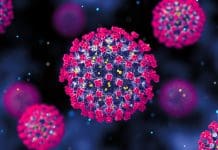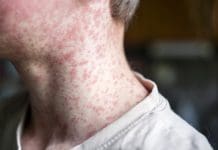A recent study from the University of Gothenburg has discovered that two existing medications can effectively treat alcohol use disorder, reducing both alcohol consumption and cravings
Alcohol use disorder is a serious condition that can decrease life expectancy by 25 years or more. Unfortunately, current treatments are effective for only a limited number of patients.
Researchers from the University of Gothenburg, Karolinska Institutet, Lund University, and Linköping University collaborated on a new treatment strategy aimed at boosting dopamine levels in the brain. Their research is based on the hypothesis that a deficiency in dopamine drives the craving for alcohol. By enhancing dopamine signalling, they aim to treat alcohol use disorder.
Reduced symptoms of alcohol use disorder after a 13-week trial
The study involved 384 individuals aged 25 to 70 years with moderate to severe alcohol use disorder participating in a 13-week trial. This trial examined the effectiveness of varenicline, a drug that stimulates dopamine release through nicotine receptors, and bupropion, which helps the brain maintain dopamine levels after it is released.
Participants were randomly assigned to one of four groups, receiving either the combination treatment, one of the two drugs alone, or a placebo. Neither the participants nor the researchers knew who received which treatment during the trial.
Results indicated the most significant reduction in alcohol consumption among those who received the combination therapy. Varenicline alone also produced a measurable effect. Outcomes were assessed using both blood biomarkers (B-PEth, which reflects long-term alcohol intake) and self-reported data.
Although the combination therapy was not proven to be more effective than varenicline alone, it was linked to fewer and shorter episodes of nausea, a common side effect of varenicline. This suggests that bupropion may enhance the tolerability of varenicline without compromising its effectiveness.
Bo Söderpalm, a professor of psychiatry at the Sahlgrenska Academy, University of Gothenburg, and senior physician at Sahlgrenska University Hospital, stated, “We observed approximately twice the effect compared to currently available medications, which is highly promising. However, further studies are necessary before the combination treatment can be approved for alcohol use disorder.”
Less nausea improves tolerability
The researchers also found that the combination treatment caused less nausea, which is a notable side effect of varenicline. Among those who experienced nausea, the symptoms lasted for a shorter duration, similar to what was observed in the placebo group.
Andrea de Bejczy, a PhD researcher affiliated with the Sahlgrenska Academy and a resident physician at Sahlgrenska University Hospital, played a central role in conducting the study: “Nausea is a well-known and troublesome side effect of treatment with varenicline. It was surprising yet very encouraging to see that nausea decreased when bupropion was added. The improved tolerability of the combination treatment increases the likelihood that patients will complete the full course of treatment,” said Andrea de Bejczy.
This study provides pharmacological support for the dopamine deficiency hypothesis of alcohol use disorder. It suggests that a combination of varenicline and bupropion is a well-tolerated, safe, and effective treatment option for this condition.
This represents a significant advancement in addressing the global burden of alcohol use disorder on healthcare and social care resources and on individuals affected by the condition.








